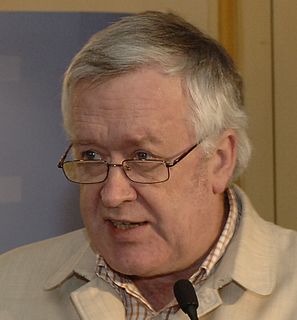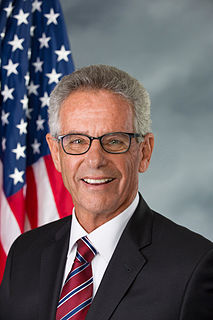A Quote by Hans von Storch
Because of the inherent time lag in the climate system, the greenhouse gases that have already been pumped into the atmosphere will undoubtedly lead to a certain increase in temperature in the coming decades.
Related Quotes
The models that have been constructed agree that when, as has been predicted, the level of carbon dioxide or its equivalent in other greenhouse gases doubles from pre-Industrial Revolution concentrations, the global average temperature will increase, and that the increase will be 1.5 to 4.5 degrees Celsius or 3 to 8 degrees Fahrenheit... In Dallas, for instance, a doubled level of carbon dioxide and other gases like methane, would increase the number of days a year with temperatures above 100 degrees from 19 to 78 each year.
Extreme weather like the droughts in Russia, China and Brazil and the flooding in Pakistan and Australia [in 2010] have contributed to a level of food price volatility we haven't seen since the oil crisisof 40 years ago. Unfortunately, this could be just a taste of things to come because in the next few decades the build-up of greenhouse gases already in the atmosphere could greatly increase the risk of droughts, flooding, pest infestation and water scarcity for agriculture systems already under tremendous stress.
We have no choice: we must protect Arctic ice, enable it to continue to act as an essential temperature regulator for the planet, avoid the catastrophic rise in sea levels that would result from the ice melt, and stop the disappearance of permafrost releasing irreversible quantities of greenhouse gases back into the atmosphere.
There is universal consensus among experts that the earth's atmosphere is heating up - and that we are responsible for it by putting carbon dioxide in the atmosphere. We also know that the consequences of global warming are catastrophic. But how do we make sure that all countries reduce greenhouse gases?
Geologists and paleo-climatologists know that in the past the Earth's temperature has been substantially warmer than it is today, and that this warming has occurred under purely natural circumstances. Until we can say precisely how much of the current global warming and greenhouse gas increase is the result of this normal temperature cycle, we will not be able to measure how much human activity has added to this natural trend, nor will we be able to predict whether there will be any lasting negative effects.

































